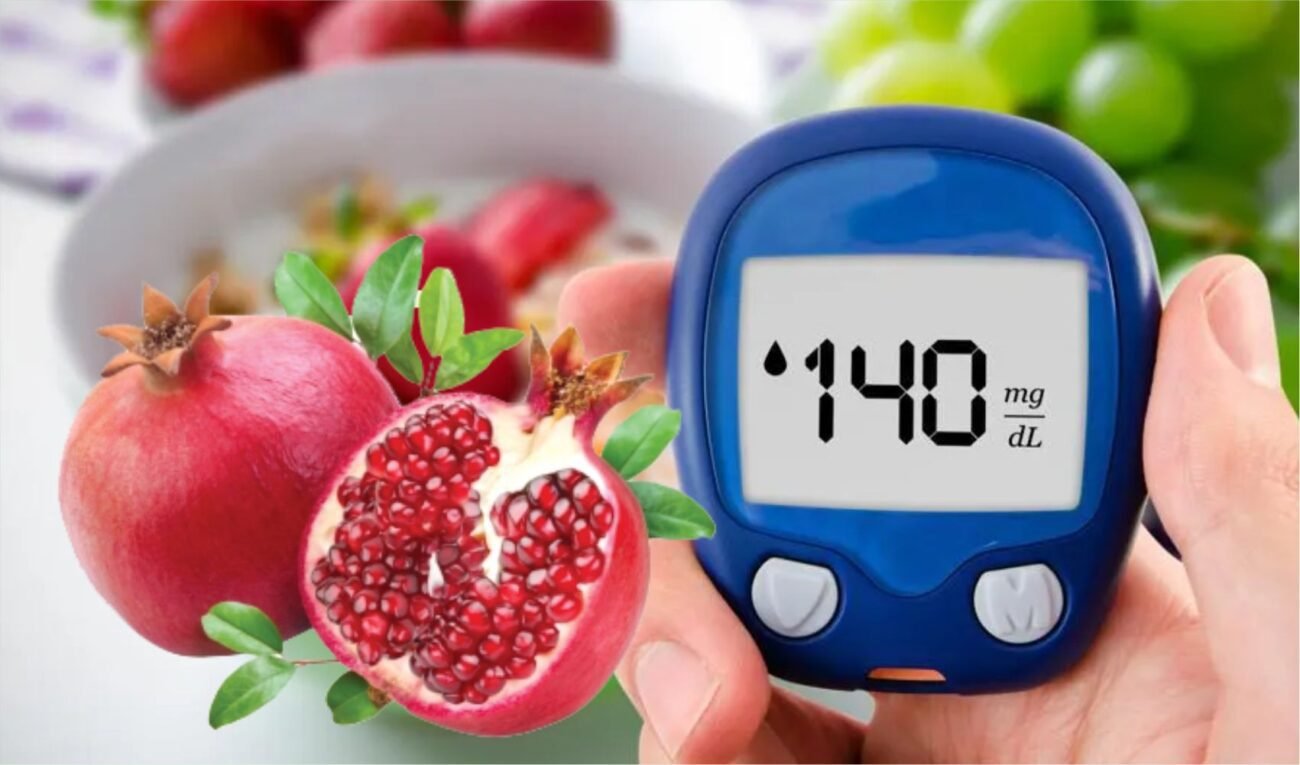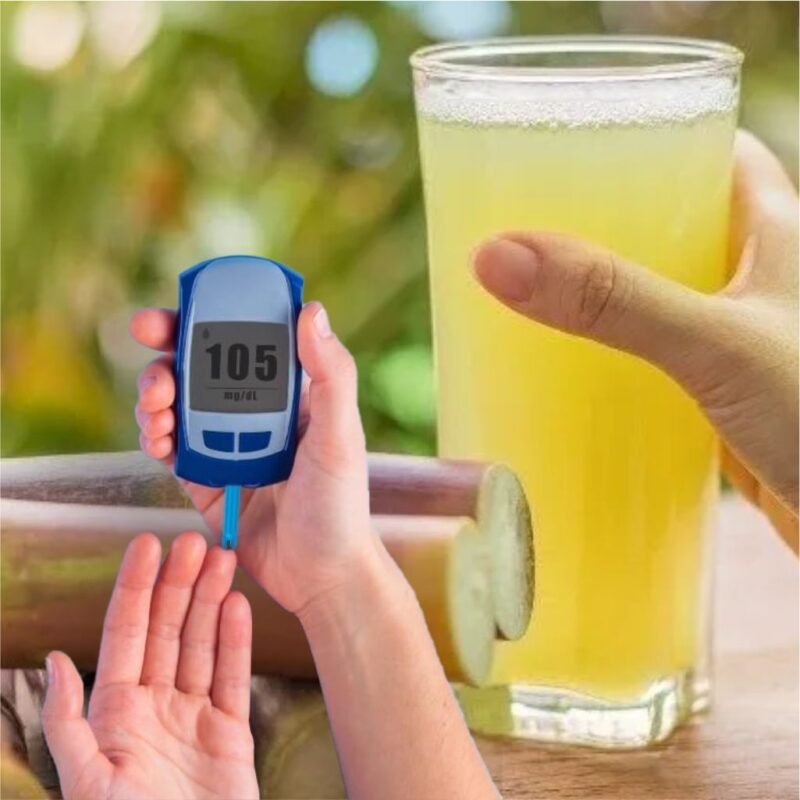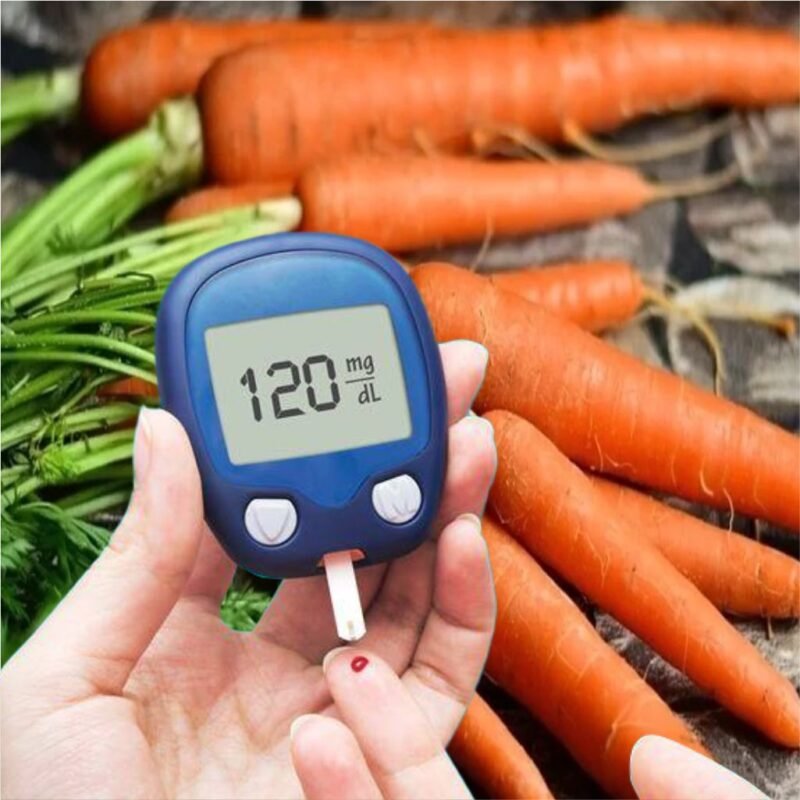How to Lower Blood Sugar Quickly Emergency at Home

When faced with a situation of high blood sugar, it is crucial to act swiftly to prevent any potential complications. Although consulting a healthcare professional is recommended, there are several steps you can take at home to lower your blood sugar levels rapidly.
High blood sugar, or hyperglycemia, can be a concerning issue for individuals with diabetes. When blood sugar levels spike unexpectedly, taking immediate action to lower them to prevent potential complications is essential. This post will discuss practical methods for rapidly lowering blood sugar levels at home in an emergency.
Blood Sugar Levels
What are blood sugar levels?
Blood sugar, or glucose, is the primary source of energy for your body’s cells. It is caused by the food you eat and regulated by the hormone insulin, which the pancreas creates. Normal blood sugar levels typically range between 80 and 130 milligrams per deciliter (mg/dL) before meals and below 180 mg/dL two hours after meals.
Learn More – How to Get Relief from Ankle Pain?
Importance of regulating blood sugar levels
For general health, blood sugar levels must be kept steady. Persistent high blood sugar can lead to complications such as heart disease, kidney damage, nerve damage, and vision problems. Thus, it’s critical to successfully monitor and control blood sugar levels.

Dr. Bhavsar – “advises avoiding sugar, curd, white flour, deep-fried food, and fermented foods. In meals, besan, ragi, and jowar flour can be nutritious alternatives or additions. After eating, take a seat in Vajrasana to control your blood sugar.“
Signs of High Blood Sugar
Common symptoms
- Increased thirst and urination
- Fatigue
- Blurred vision
- Headaches
- Slow wound healing
- Nausea and vomiting
Why it’s crucial to lower high blood sugar levels quickly
Hyperglycemic hyperosmolar state (HHS) and diabetic ketoacidosis (DKA), two potentially fatal disorders, can be brought on by unchecked high blood sugar levels. Swift action must be taken to avoid these crises.
Emergency Actions to Reduce Blood Sugar Levels
During an emergency, following these steps can help lower blood sugar levels rapidly:
1. Stay calm and assess the situation
Panicking can elevate stress levels, which may further increase blood sugar levels. Take a deep breath and focus on addressing the issue calmly.
2. Drink water
Maintaining hydration might aid in the removal of extra sugar from the blood. Drink plenty of water, but avoid sugary beverages.
3. Physical activity
Take up some modest exercise, like stretching or walking, to improve the way your body uses glucose. However, avoid strenuous exercise, as it can cause blood sugar levels to rise.

4. Consuming fiber-rich foods
Foods high in fiber, such as vegetables, legumes, and whole grains, can slow down the absorption of sugar into the bloodstream, helping to stabilize blood sugar levels.
5. Apple cider vinegar
According to certain research, apple cider vinegar may decrease blood sugar and increase insulin sensitivity. Dilute a tablespoon of apple cider vinegar in water and drink it before meals.
6. Cinnamon
Cinnamon contains compounds that may mimic the effects of insulin, helping to lower blood sugar levels. Sprinkle cinnamon on foods or add it to beverages for a natural remedy.
7. Fenugreek seeds
Fenugreek seeds are rich in soluble fiber, which can help regulate blood sugar levels. Fenugreek seeds should be soaked overnight and eaten empty-handed first thing in the morning.
8. Monitor blood sugar levels
Throughout the emergency, keep an eye on your blood sugar levels to make sure they are steadily falling. If they stay high or keep rising, get medical help right away.
Lifestyle Changes to Prevent Blood Sugar Spikes
In addition to managing emergencies, adopting healthy lifestyle habits can help prevent blood sugar spikes in the long term:
Balanced diet
Consume a balanced diet rich in fruits, vegetables, lean proteins, and whole grains while limiting processed foods, sugary snacks, and beverages.
Regular exercise
Exercise regularly to control blood sugar levels and increase insulin sensitivity. Examples of this exercise include cycling, swimming, running, and walking.

Adequate sleep
Make getting enough good sleep a priority because getting too little sleep can throw off hormone balances, cause insulin resistance, and raise the risk of high blood sugar.
Stress management
Practice stress-reduction techniques such as deep breathing, meditation, yoga, or time in nature to lower stress hormones and stabilize blood sugar levels.
Conclusion
For those who have diabetes, controlling elevated blood sugar levels during emergencies is essential. You can avoid potential consequences and preserve your best health by being aware of the warning signals of high blood sugar and taking prompt action at home.
FAQs
What causes high blood sugar levels?
Excessive consumption of carbohydrates, insufficient exercise, stress, disease, adverse drug reactions, and inadequate insulin synthesis or use in the body are all potential causes of elevated blood sugar levels.
Can stress affect blood sugar levels?
Yes, stress can trigger the release of stress hormones like cortisol and adrenaline, which can cause blood sugar levels to rise. Blood sugar regulation depends on using relaxing strategies to manage stress.
Is it safe to reduce blood sugar levels only using natural remedies?
While home remedies can help manage blood sugar levels, they should not replace medical treatment prescribed by healthcare professionals. Before trying any new cures, especially in an emergency, always get medical advice.
How often should blood sugar levels be monitored?
The frequency of blood sugar monitoring depends on individual health conditions and treatment plans. People with diabetes may need to monitor their blood sugar levels multiple times a day, especially if they are taking insulin or other medications.
Are there any long-term complications of uncontrolled high blood sugar levels?
Indeed, unchecked high blood sugar levels can cause major side effects like diabetic foot, heart disease, stroke, kidney damage, neuropathy, retinopathy, and nerve damage in the eyes and feet. To avoid these issues, proper management is necessary.











